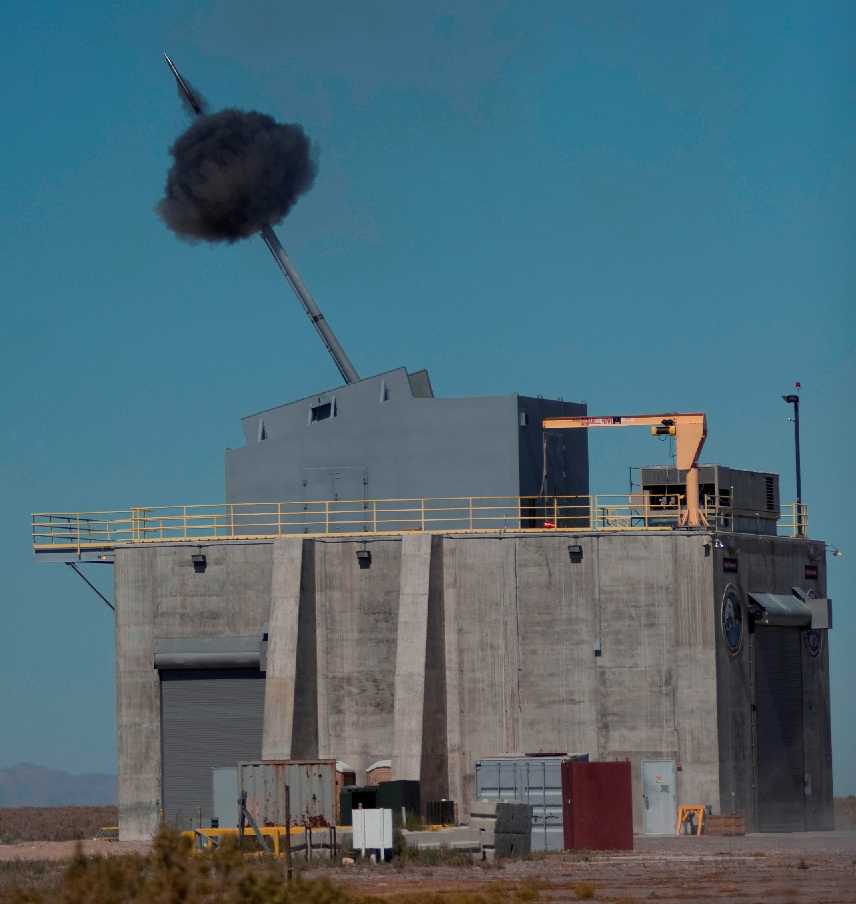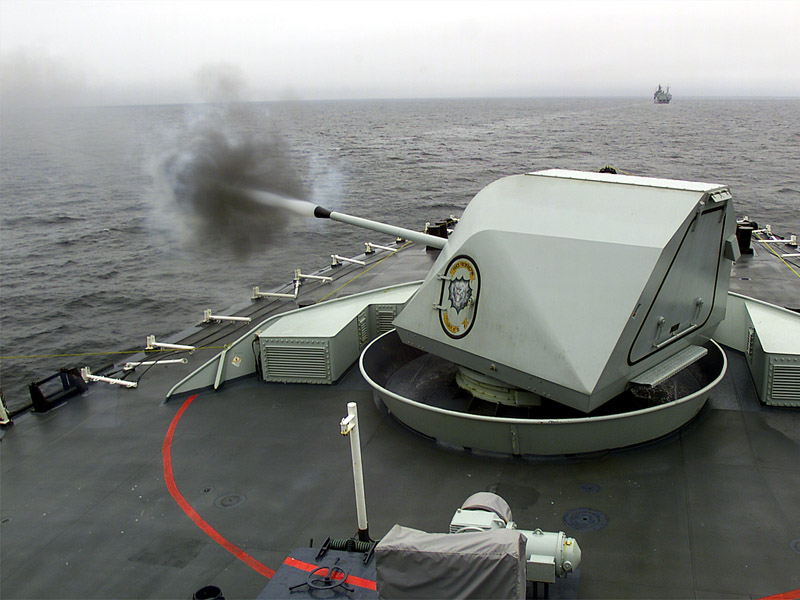BLACKEAGLE
SENIOR MEMBER
- The USS Zumwalt launched from Bath Iron Works in Maine on Monday morning
- The 600-foot-long destroyer cruised along the Kennebec River to the Atlantic on its first voyage
- The ship, which weighs 15,000 tons, has taken four years to build at an estimated cost of $4.3 billion
- Engineers will test the computer and power systems aboard the Navy's first 'all-electric' warship
- The unique angular design is intended to fool radars into classing it as a fishing vessel
Published: 16:12 GMT, 7 December 2015 | Updated: 13:09 GMT, 8 December 2015
The largest destroyer ever built for the U.S. Navy headed out to sea for the first time Monday, departing from shipbuilder Bath Iron Works in Maine and carefully navigating the winding Kennebec River before reaching the open ocean where the ship will undergo sea trials.
More than 200 shipbuilders, sailors and residents gathered to watch as the futuristic 600-foot, 15,000-ton USS Zumwalt glided past Fort Popham, accompanied by tugboats.
Kelley Campana, a Bath Iron Works employee, said she had goose bumps and tears in her eyes.
'This is pretty exciting. It's a great day to be a shipbuilder and to be an American,' she said.
'It's the first in its class. There's never been anything like it. It looks like the future.'
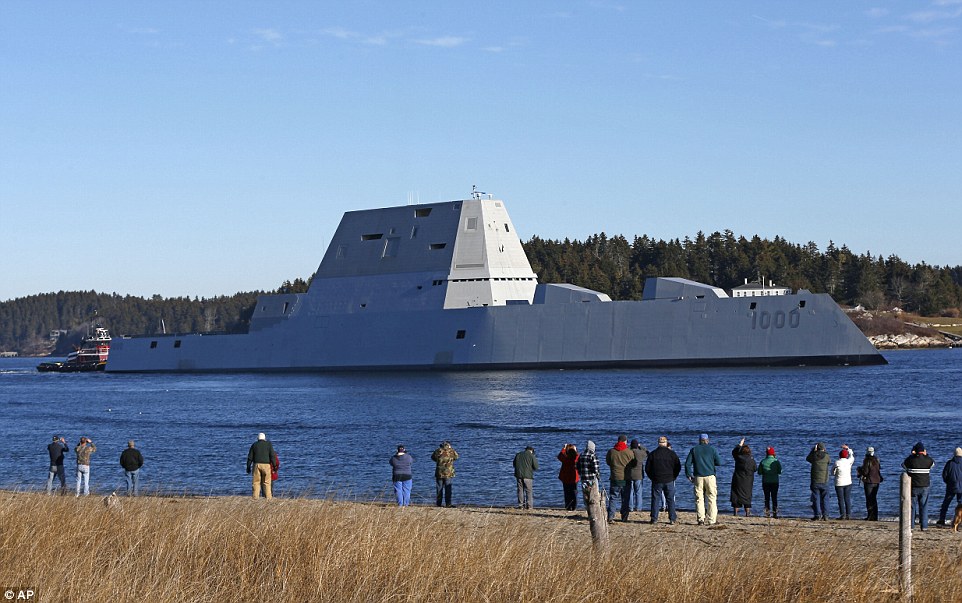
On its way: The U.S. Navy's first Zumwalt-class destroyer leaves the Kennebec River in Maine on Monday morning - passing a crowd of spectators - as it heads out to sea for the first time to undergo sea trials
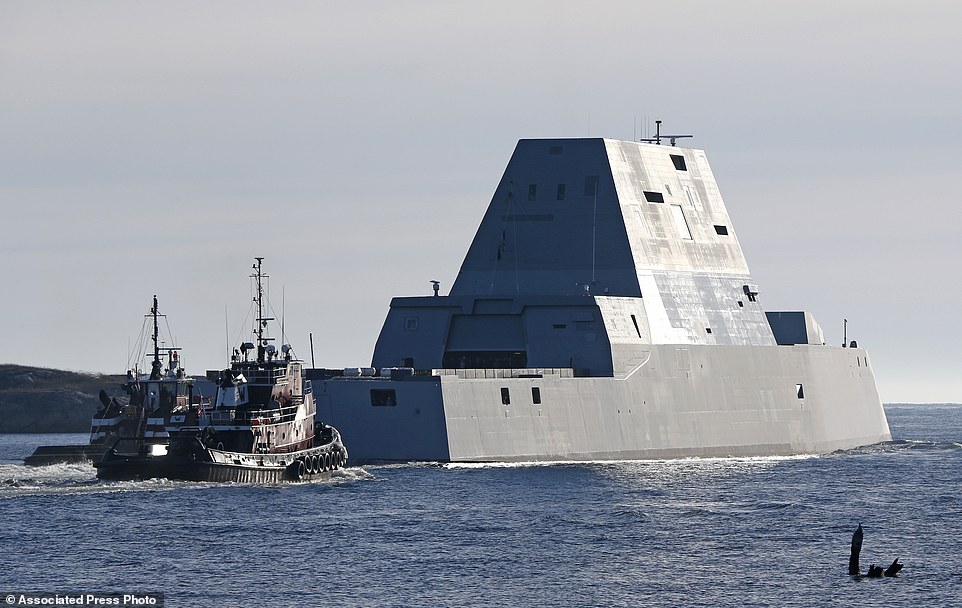
Big moment: The first Zumwalt-class destroyer, the USS Zumwalt is the largest ever built for the Navy and cost an estimated $4.3 billion
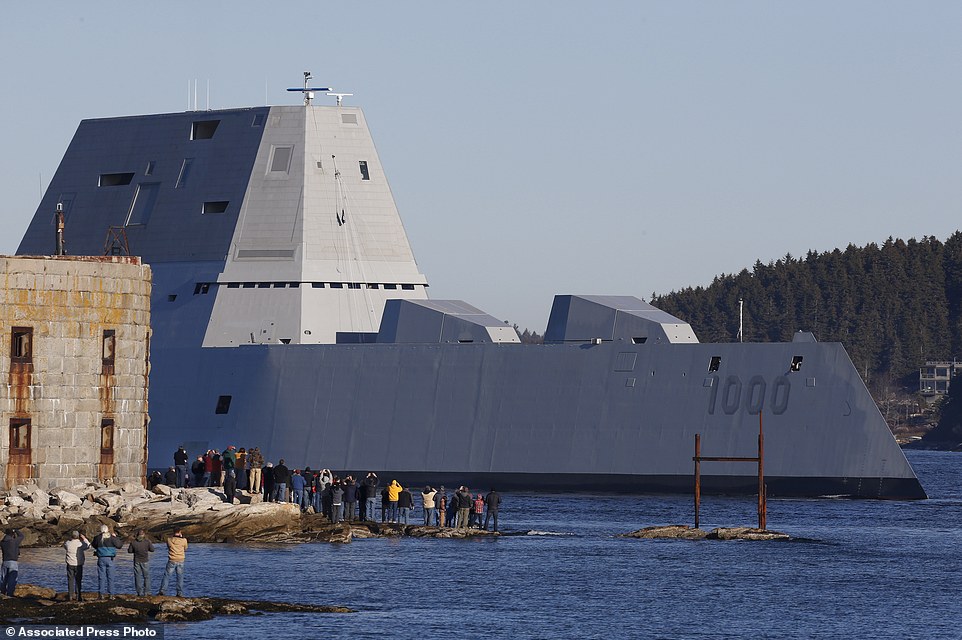
Heading out to sea: The 600-foot-long destroyer cruised along the Kennebec River to the Atlantic on its maiden voyage
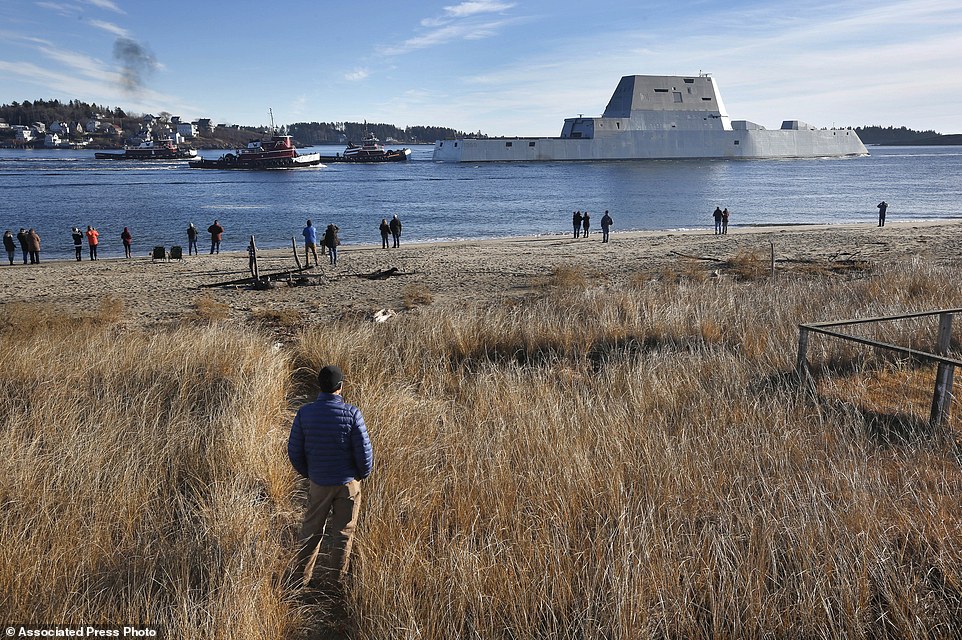
Spectators line the shore in Phippsburg, Maine, on Monday morning to witness the ship is headed out to sea for sea trials
Larry Harris, a retired Raytheon employee who worked on the ship, watched it depart from Bath.
'It's as cool as can be. It's nice to see it underway,' he said.
'Hopefully, it will perform as advertised.'
Bath Iron Works will be testing the ship's performance and making tweaks this winter.

'IIt's the first in its class. There's never been anything like it. It looks like the future': said Kelley Campana, a Bath Iron Works employee
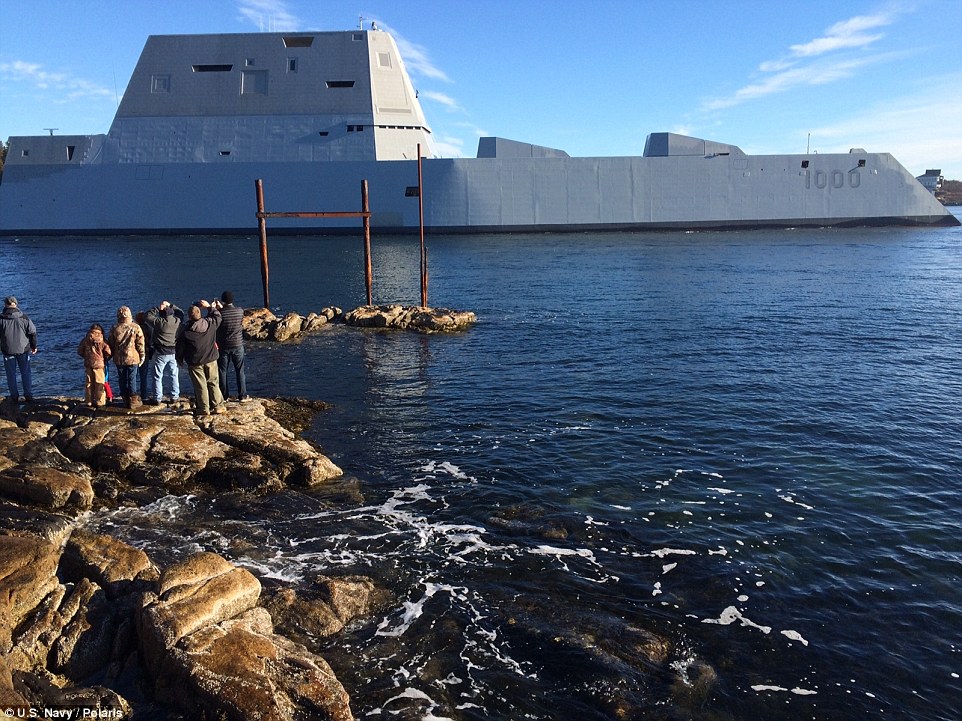
Futuristic: Resembling a 19th century ironclad warship the, USS Zumwalt uses a 21st century version of a 'tumblehome' hull
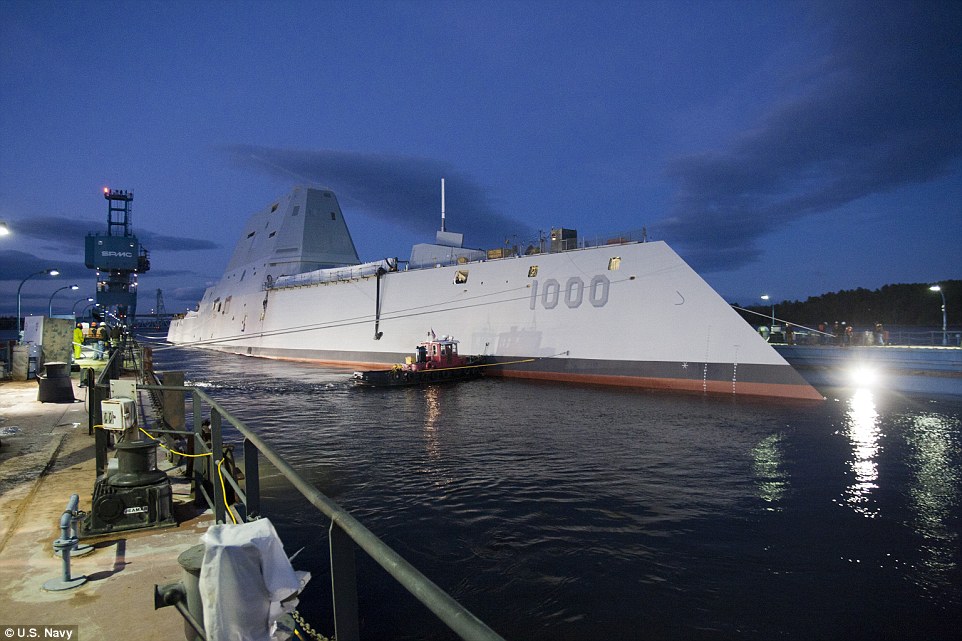
Hulking: First-in-class USS Zumwalt is the largest U.S. Navy destroyer ever built and took four years to complete. It is now being tested
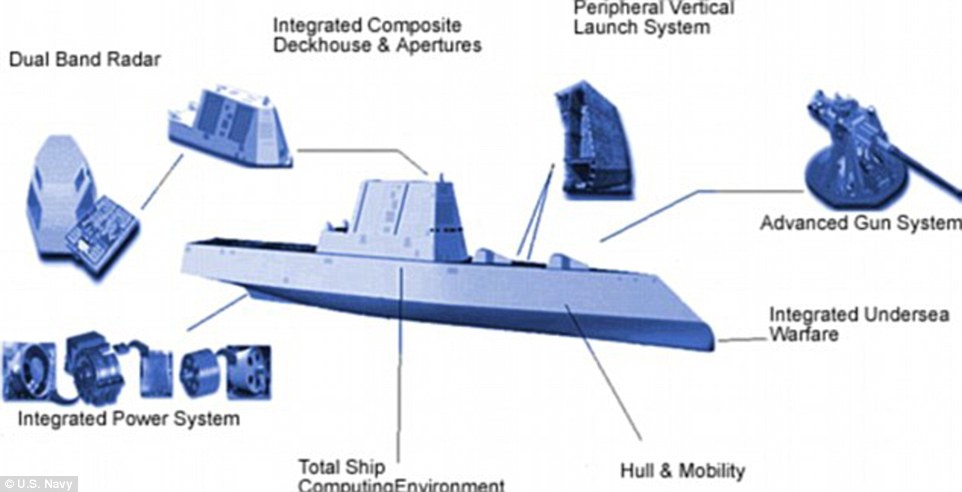
The Zumwalt looks like no other U.S. warship, with an angular profile and clean carbon fiber superstructure that hides antennas and radar masts, among many other features
USS ZUMWALT: EQUIPPED TO DOMINATE THE SEAS FOR DECADES
Displacement: 14,564 long tons (14,798 t)
Length: 600 ft (180 m)
Beam: 80.7 ft (24.6 m)
Draft: 27.6 ft (8.4 m)
Propulsion: Two Rolls-Royce Marine Trent-30 gas turbines driving Curtiss-Wright generators and emergency diesel generators, 78 MW (105,000 shp); two propellers driven by electric motors
Speed: Over 30 kn (56 km/h; 35 mph)
Weapons:
20 × MK 57 VLS modules, with a total of 80 launch cells
RIM-162 Evolved Sea Sparrow Missile (ESSM), four per cell
Tactical Tomahawk, one per cell
Vertical Launch Anti-Submarine Rocket (ASROC), one per cell
Two × 155 mm/62 caliber Advanced Gun System
920 × 155 mm rounds total; 600 in automated store with Auxiliary store room with up to 320 rounds (non-automatic) as of April 2005
70–100 LRLAP rounds planned as of 2005 of total
Two × Mk 110 57 mm gun (CIGS)
For the crew and all those involved in designing, building, and readying this fantastic ship, this is a huge milestone,' the ship's skipper, Navy Capt. James Kirk, said before the ship departed.
The ship has electric propulsion, new radar and sonar, powerful missiles and guns, and a stealthy design to reduce its radar signature.
Advanced automation will allow the warship to operate with a much smaller crew size than current destroyers.
All of that innovation has led to construction delays and a growing price tag.
The Zumwalt, the first of three ships in the class, will cost at least $4.4 billion.
The ship looks like nothing ever built at Bath Iron Works.
The inverse bow juts forward to slice through the waves.
Sharp angles deflect enemy radar signals. Radar and antennas are hidden in a composite deckhouse.
The builder sea trials will answer any questions of seaworthiness for a ship that utilizes a type of hull associated with pre-dreadnought battleships from a century ago.
Critics say the 'tumblehome' hull's sloping shape makes it less stable than conventional hulls, but it contributes to the ship's stealth and the Navy is confident in the design.
Eric Wertheim, author and editor of the U.S. Naval Institute's 'Guide to Combat Fleets of the World,' said there's no question the integration of so many new systems from the electric drive to the tumblehome hull carries some level of risk.
Operational concerns, growing costs and fleet makeup led the Navy to truncate the 32-ship program to three ships, he said.
With only three ships, the class of destroyers could become something of a technology demonstration project, he said.
The goal is to deliver it to the Navy sometime next year.
'We are absolutely fired up to see Zumwalt get underway.
The Zumwalt looks like no other U.S. warship, with an angular profile and clean carbon fiber superstructure that hides antennas and radar masts.
Originally envisioned as a ‘stealth destroyer,’ the Zumwalt has a low-slung appearance and angles that deflect radar. Its wave-piercing hull aims for a smoother ride.
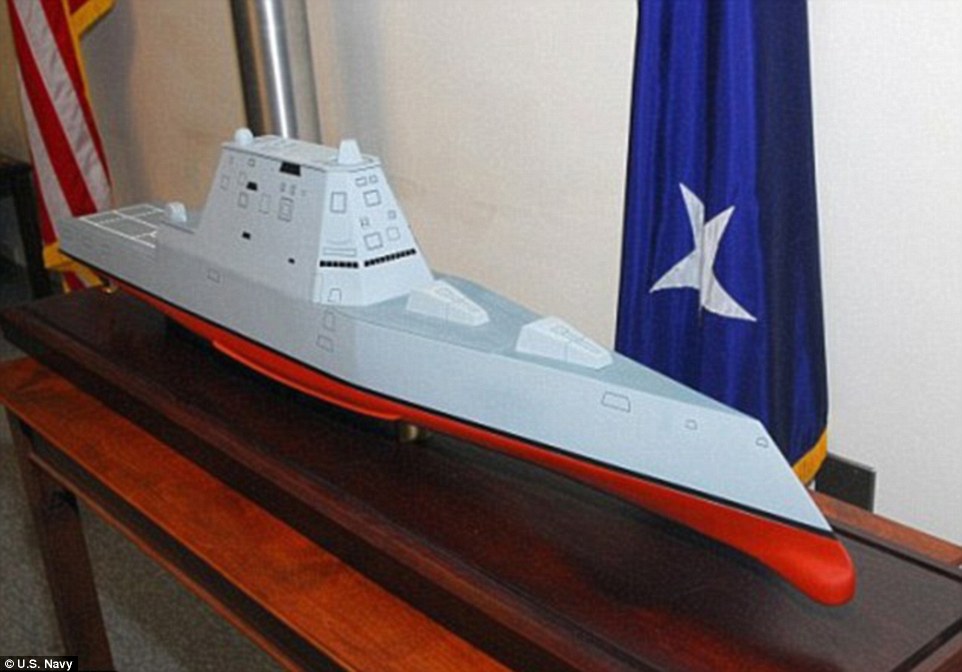
A model of the Zumwalt Class destroyer built by Bath Iron Works and Northrop Grumman Shipbuilding is seen displayed during a contract signing ceremony at the Pentagon
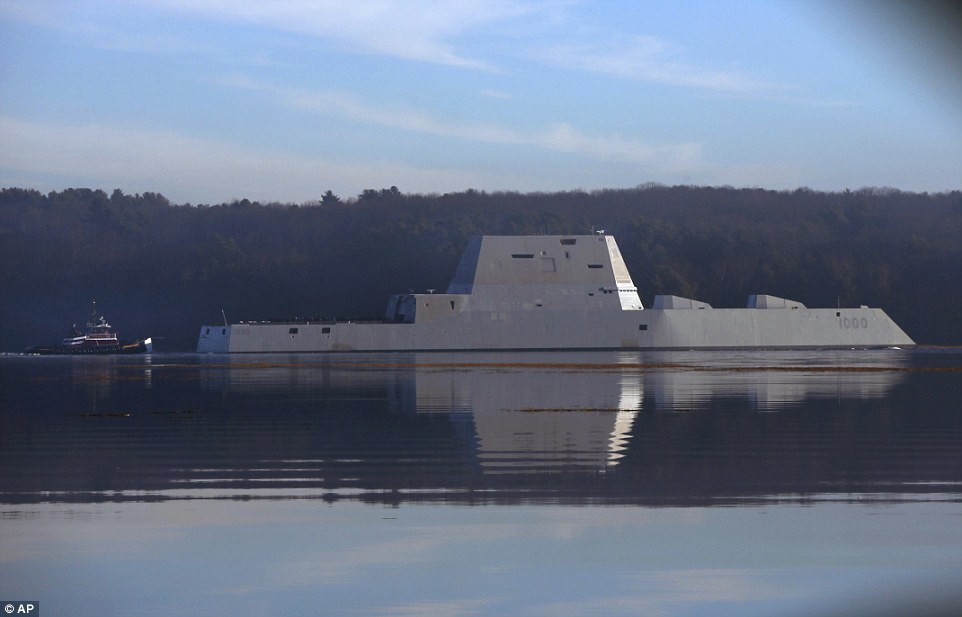
The ship has electric propulsion, new radar and sonar, powerful missiles and guns, and a stealthy design to reduce its radar signature
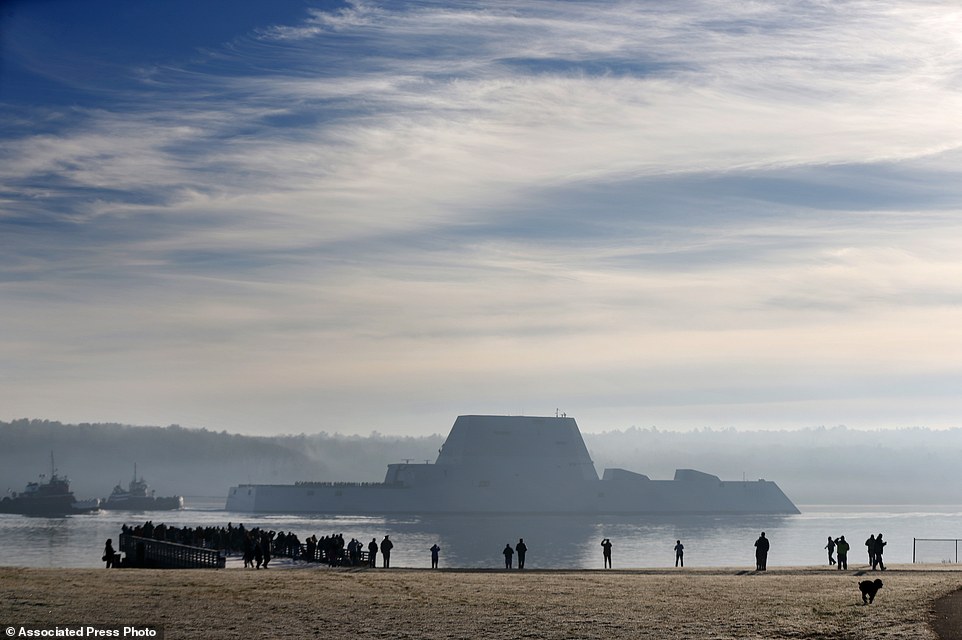
The first Zumwalt-class destroyer, the largest ever built for the U.S. Navy, heads down the Kennebec River after leaving Bath Iron Works
USS Zumwalt heads out to sea on its maiden voyage | Daily Mail Online

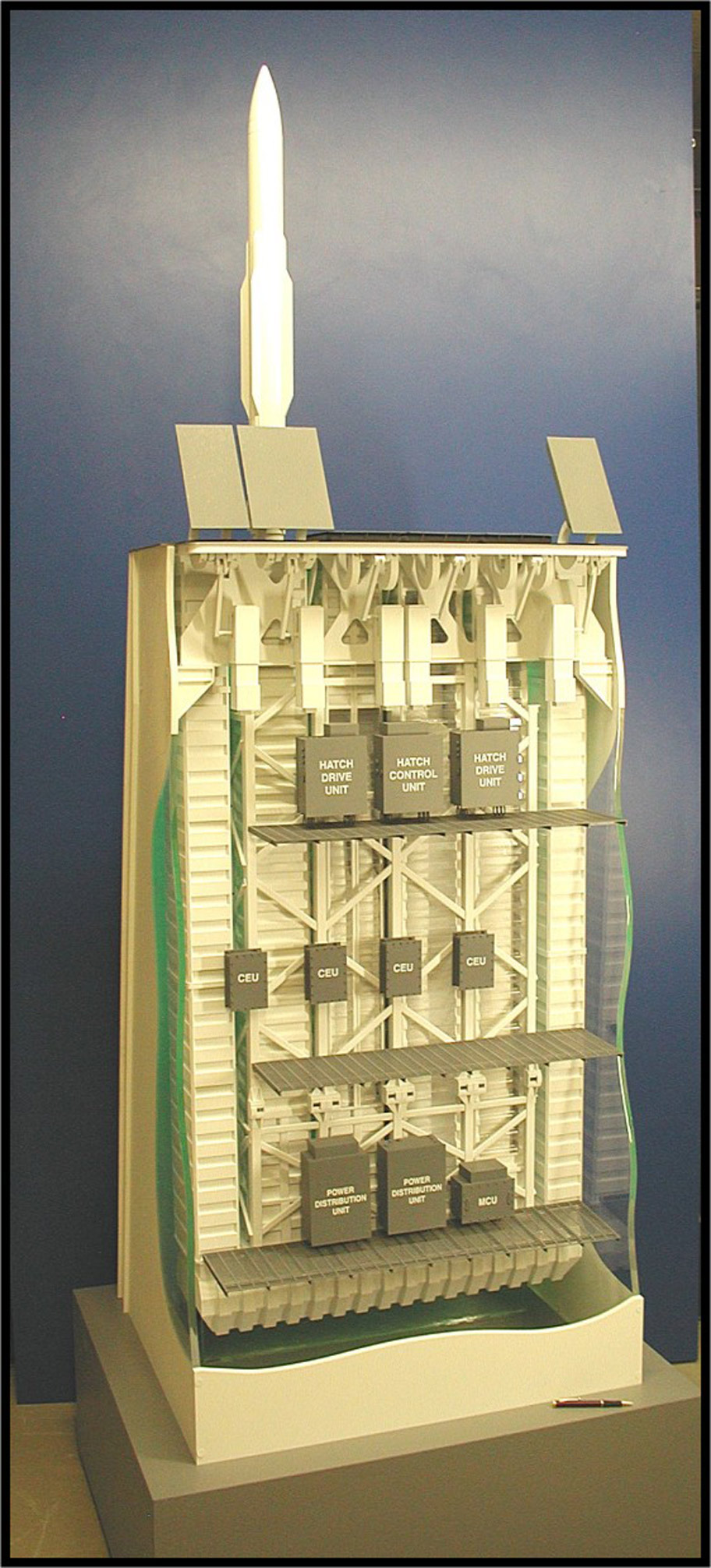
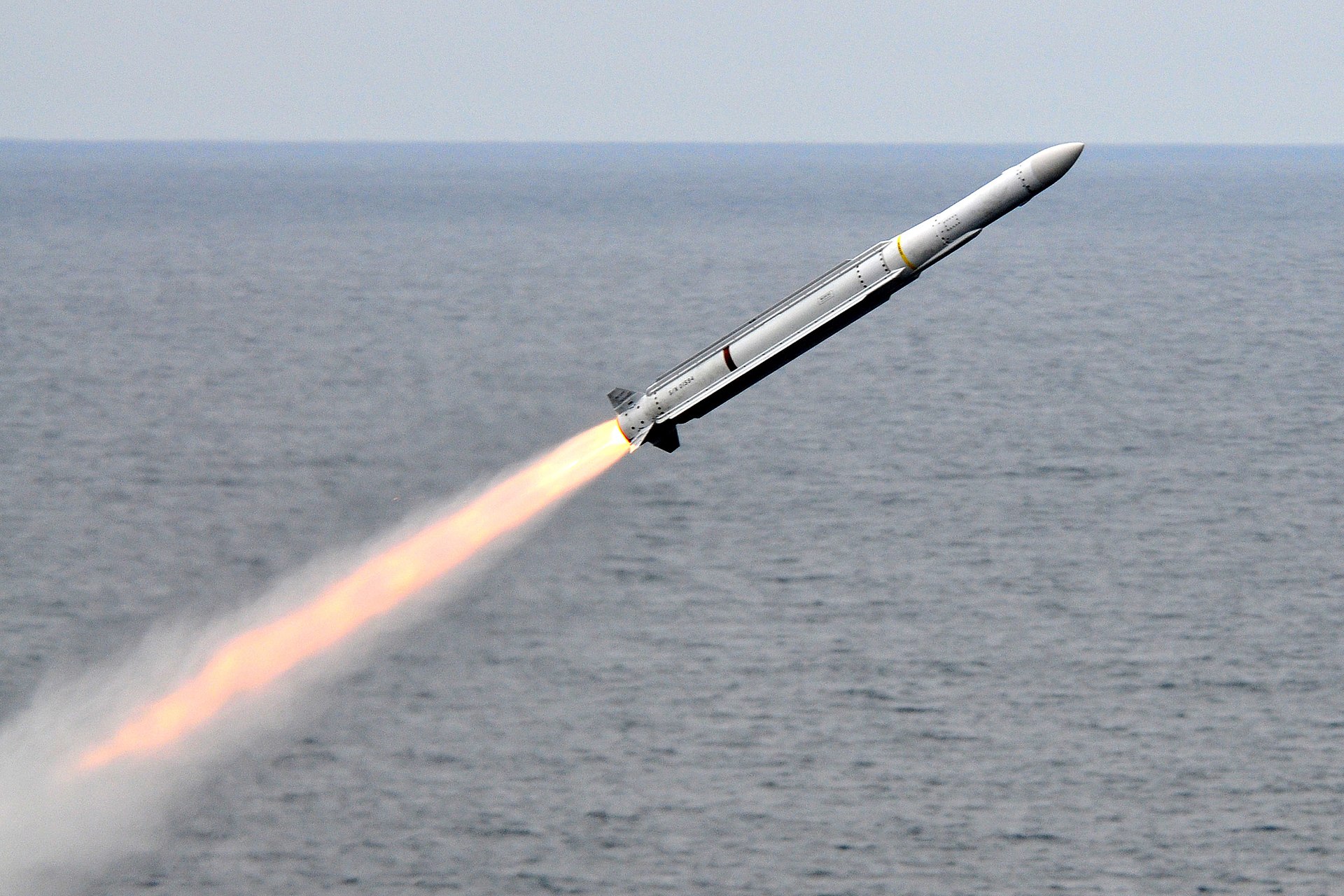
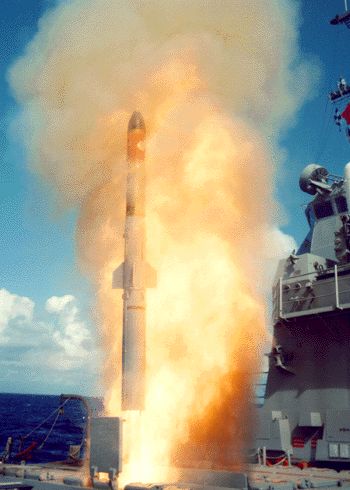
 :
: 